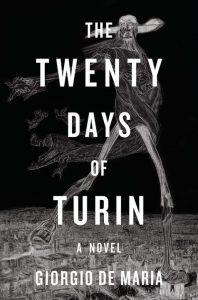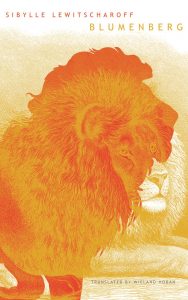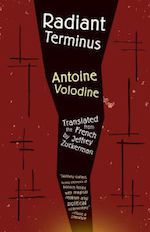 The Twenty Days of Turin by Giorgio De Maria, translated by Ramon Glazov (Liveright, February 7)
The Twenty Days of Turin by Giorgio De Maria, translated by Ramon Glazov (Liveright, February 7)
“Written during the height of the 1970s Italian domestic terror, a cult novel, with distinct echoes of Lovecraft and Borges, makes its English-language debut.In the spare wing of a church-run sanatorium, some zealous youths create “the Library,” a space where lonely citizens can read one another’s personal diaries and connect with like-minded souls in “dialogues across the ether.” But when their scribblings devolve into the ugliest confessions of the macabre, the Library’s users learn too late that a malicious force has consumed their privacy and their sanity. As the city of Turin suffers a twenty-day “phenomenon of collective psychosis” culminating in nightly massacres that hundreds of witnesses cannot explain, the Library is shut down and erased from history. That is, until a lonely salaryman decides to investigate these mysterious events, which the citizenry of Turin fear to mention. Inevitably drawn into the city’s occult netherworld, he unearths the stuff of modern nightmares: what’s shared can never be unshared.An allegory inspired by the grisly neo-fascist campaigns of its day, The Twenty Days of Turin has enjoyed a fervent cult following in Italy for forty years.”
“The most patently sci-fi work of Antoine Volodine’s to be translated into English, Radiant Terminus takes place in a Tarkovskian landscape after the fall of the Second Soviet Union. Most of humanity has been destroyed thanks to a number of nuclear meltdowns, but a few communes remain, including one run by Solovyei, a psychotic father with the ability to invade people’s dreams—including those of his daughters—and torment them for thousands of years. When a group of damaged individuals seek safety from this nuclear winter in Solovyei’s commune, a plot develops to overthrow him, end his reign of mental abuse, and restore humanity. Fantastical, unsettling, and occasionally funny, Radiant Terminus is a key entry in Volodine’s epic literary project that—with its broad landscape, ambitious vision, and interlocking characters and ideas—calls to mind the best of David Mitchell.”
 Blumenberg by Sibylle Lewitscharoff, translated by Wieland Hoban (Seagull Books, February 15)
Blumenberg by Sibylle Lewitscharoff, translated by Wieland Hoban (Seagull Books, February 15)
“One night, German philosopher Hans Blumenberg returns to his study to find a shocking sight—a lion lying on the floor as if it’s the most natural thing in the world. The lion stretches comfortably on the Turkmen rug, eyes resting on Blumenberg. The philosopher with some effort retains his composure, even when the next day during his lecture the lion makes another appearance, ambling slowly down the center aisle. Blumenberg glances around; the seats are full, but none of his students seem to see the lion…Blumenberg is the captivating and witty fictional tale of this likable philosopher and the handful of students who come under the spell of the supernatural lion—including skinny Gerhard Optatus Baur, a promising young Blumenbergian, and the delicate, haughty Isa, who falls head over heels in love with the wrong man.”
 “Rain Ship” by Chi Hui, translated by Andy Dudak (Clarkesworld Magazine)
“Rain Ship” by Chi Hui, translated by Andy Dudak (Clarkesworld Magazine)

